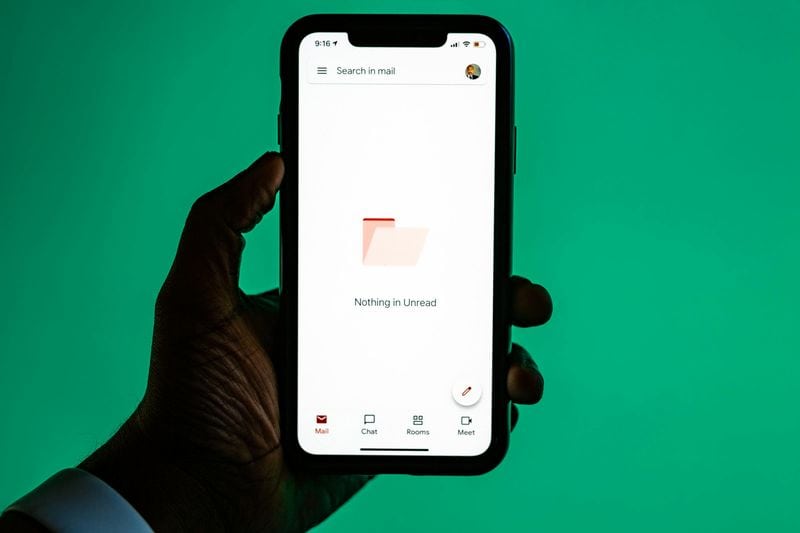Relationships thrive on genuine care and attention, yet sometimes people may not be as invested as they appear.
Recognizing when someone doesn’t truly value you can save emotional energy and help you focus on healthier connections.
These subtle signs are often easy to miss but understanding them can protect your heart and guide you toward more meaningful relationships.
1. They Never Initiate Contact
Friendship and relationships should be a two-way street, but some people never take the first step to reach out. You’re always the one sending that first text, making plans, or checking in on how they’re doing.
Over time, this imbalance becomes exhausting. You might rationalize their behavior—maybe they’re just busy or forgetful—but consistently being the relationship’s driving force reveals where you stand on their priority list.
When someone truly cares, they make an effort to maintain connection, even during hectic periods. Their silence speaks volumes about their investment in your friendship.
2. Conversations Stay Surface-Level
Real connection happens when people dive beneath small talk, yet some individuals keep every interaction deliberately shallow. They respond with brief answers when you share something personal and quickly redirect conversations away from meaningful topics.
Notice how they might nod along to your stories but rarely ask follow-up questions. Their eyes might wander as you speak, checking their phone or scanning the room for more interesting options. This conversational wall creates distance.
Someone who cares wants to understand your thoughts, dreams, and worries—not just exchange weather observations and generic pleasantries.
3. Your Achievements Go Unacknowledged
Landing that promotion, finishing your degree, or reaching a personal milestone should bring supportive reactions from those who value you.
Yet some people respond to your proudest moments with indifference or change the subject entirely. More telling is when they downplay your success with backhanded compliments or immediately shift focus to themselves.
“That’s nice, but let me tell you about my day” becomes their predictable response pattern. True supporters celebrate your victories as if they were their own.
When someone consistently fails to acknowledge your achievements, they’re showing you exactly where your happiness ranks in their priorities.
4. Body Language Screams Disinterest
Our bodies often reveal what polite words conceal. Someone who doesn’t care might physically position themselves away from you during conversations—turning their feet toward exits or leaning backward when you speak.
Crossed arms, minimal eye contact, and stiff smiles are telltale signs of emotional distance. They may check the time repeatedly or scan the room for more interesting people while nodding mechanically at your words.
These nonverbal cues aren’t coincidental; they’re unconscious signals of disengagement. When someone’s body constantly shows they’d rather be elsewhere, believe what their posture is telling you.
5. They Remember Selectively
Memory becomes remarkably selective when someone doesn’t truly care. They somehow forget your birthday, important events, or personal preferences you’ve mentioned multiple times—yet remember intricate details about topics they find interesting.
Watch for the pattern: they need reminders about plans with you but never forget appointments that benefit them. Their memory lapses aren’t random but follow a clear pattern of what they deem worth remembering.
Someone who values you pays attention to what matters to you. When they consistently “forget” important aspects of your life while remembering trivial information, they’re revealing their true priorities.
6. Your Feelings Get Dismissed
Emotional invalidation comes in many forms—changing the subject when you express feelings, telling you to “just get over it,” or comparing your struggles to others who “have it worse.” These responses minimize your emotional experience rather than offering understanding.
Someone who doesn’t care might roll their eyes when you’re upset or make you feel dramatic for having normal emotional reactions. They might even use your feelings against you later or bring them up sarcastically.
Caring people create safe spaces for emotional expression. When someone consistently makes you feel silly or burdensome for having feelings, they’re showing a fundamental lack of respect for your inner world.
7. They’re Mysteriously Unavailable During Tough Times
Fair-weather friends materialize for celebrations but vanish when challenges arise. They’ll have elaborate excuses for why they can’t support you during hardships—suddenly becoming too busy, dealing with their own issues, or offering empty “thoughts and prayers” from a safe distance.
Look for the pattern of conveniently timed absences. These same people who can’t help during your crisis somehow have time for activities they enjoy or for others they prioritize more highly. Difficult times reveal true connections.
Someone who repeatedly disappears exactly when you need support isn’t just unlucky with timing—they’re showing you exactly how much effort they’re willing to invest in your relationship.
8. Your Boundaries Get Ignored
Healthy relationships respect personal boundaries, but someone who doesn’t care will repeatedly cross your clearly stated limits. They might show up unannounced after you’ve asked for space or pressure you into situations that make you uncomfortable.
Notice how they react when you reinforce boundaries—with irritation, guilt-tripping, or acting like you’re being unreasonable. They might even mock your boundaries to others or treat them as optional suggestions rather than necessary requirements.
Boundary violations aren’t misunderstandings when they form a pattern. Someone who genuinely values you will work to understand and honor your limits, not treat them as obstacles to overcome or ignore.
9. They Compare You Unfavorably to Others
Subtle comparisons that leave you feeling inadequate reveal someone’s lack of appreciation for who you are. “Why can’t you be more like Sarah?” or “John would never react that way” becomes their way of communicating you don’t measure up to their standards.
These comparisons might be framed as helpful suggestions or constructive criticism, but they consistently undermine your confidence. They focus on your perceived shortcomings rather than recognizing your unique qualities and strengths.
People who truly care celebrate your individuality instead of trying to reshape you into someone else. When someone regularly highlights how you fall short compared to others, they’re showing dissatisfaction with your authentic self.
10. Their Actions Never Match Their Words
Empty promises and hollow reassurances become a pattern with people who don’t genuinely care. They’ll claim you’re important while consistently demonstrating the opposite through their behavior—canceling plans, forgetting commitments, or making decisions that affect you without consideration.
“I’m here for you anytime” comes from the same person who never answers your calls. “You mean the world to me” is said by someone who makes no effort to be part of your world. This disconnect between words and actions creates constant disappointment.
When someone’s behavior repeatedly contradicts their caring statements, trust what they do rather than what they say—actions reveal true priorities.











